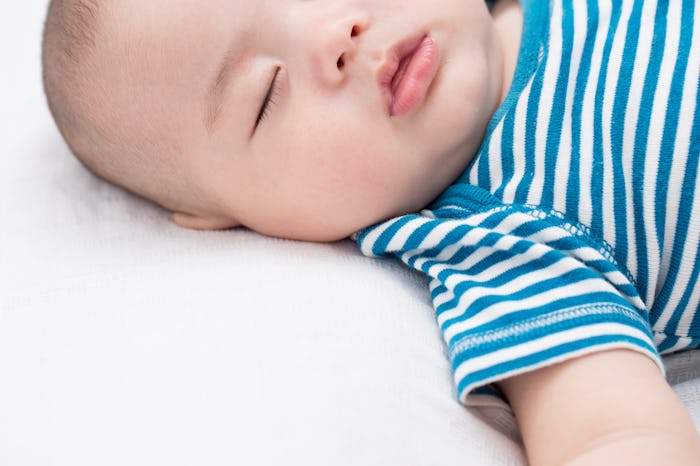Life

Which Is Better — Co-Sleeping Or Bed-Sharing?
For many new parents, deciding where baby will sleep is a pretty big deal. Some parents prefer to have the new baby sleep in his own room right away, whereas others want to keep their infant close at hand. Even if you've decided to have the baby sleep in your room, there's still another major question to consider: which is better — co-sleeping or bed-sharing? Choosing the ideal sleeping arrangement for your family may help everyone rest easier at night.
For starters, it's important to understand the difference between co-sleeping and bed-sharing. Co-sleeping generally refers to the practice of having your infant sleep in the same room as you, with the baby on a separate sleep surface, according to the University of Notre Dame's Mother-Baby Behavioral Sleep Laboratory. In this case, your baby would sleep in your bedroom, in a cot or crib near the bed. On the other hand, KidsHealth noted that bed-sharing is the practice of having your infant sleep in the same bed as you. Although it may seem like a minor difference at first, there are some surprising ways in which co-sleeping and bed-sharing may affect the health and safety of your little one. In fact, many child health experts strongly prefer one practice over the other.
As far as most pediatricians are concerned, co-sleeping is the safest way to snooze with your baby. In fact, according to the American Academy of Pediatrics (AAP), as long as your baby is on a separate sleep surface co-sleeping is the safest option for infants. Having your baby sleep in a crib in your room, for instance, may help decrease the instances of sleep-related infant deaths such as SIDS, as further explained by the AAP. Basically, co-sleeping helps you monitor and soothe your baby at night, without presenting the risks of bed-sharing.
On that note, many experts do not recommend bed-sharing. For infants aged 4 months and younger, bed-sharing may be the biggest risk factor for SIDS, according to a 2014 study in Pediatrics. In many cases, an adult bed may present serious suffocation hazards to a very young infant.
But in reality, bed-sharing happens. Even if you don't plan to do it, it's not uncommon to bring your baby into bed for a minute, maybe just for a feeding, and sort of accidentally fall asleep. Chronic sleep deprivation can have that affect on people. So you can still take steps to bed-share safely, by using a firm mattress and keeping extra pillows off the bed, to make it a safer environment for your little one. In the end, whether you decide to bed-share, co-sleep, or use a separate bedroom for your little one all depends on what works best for your family.